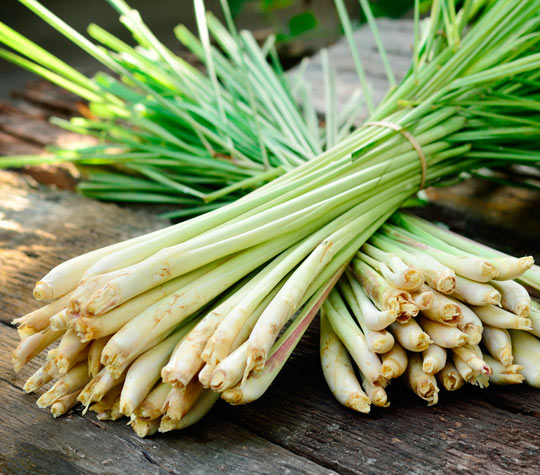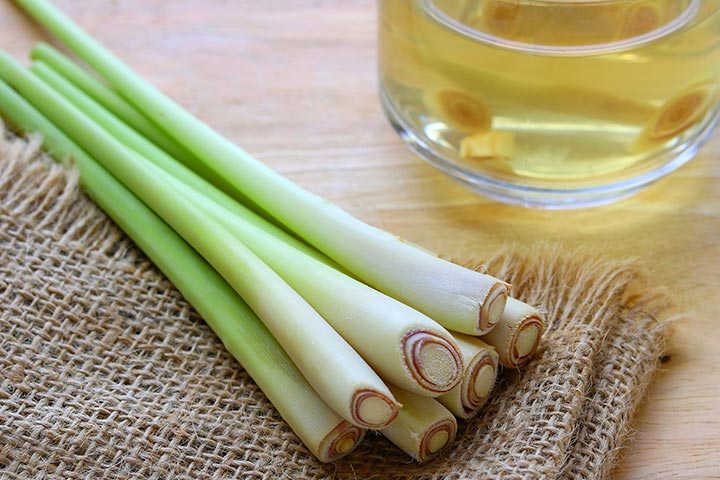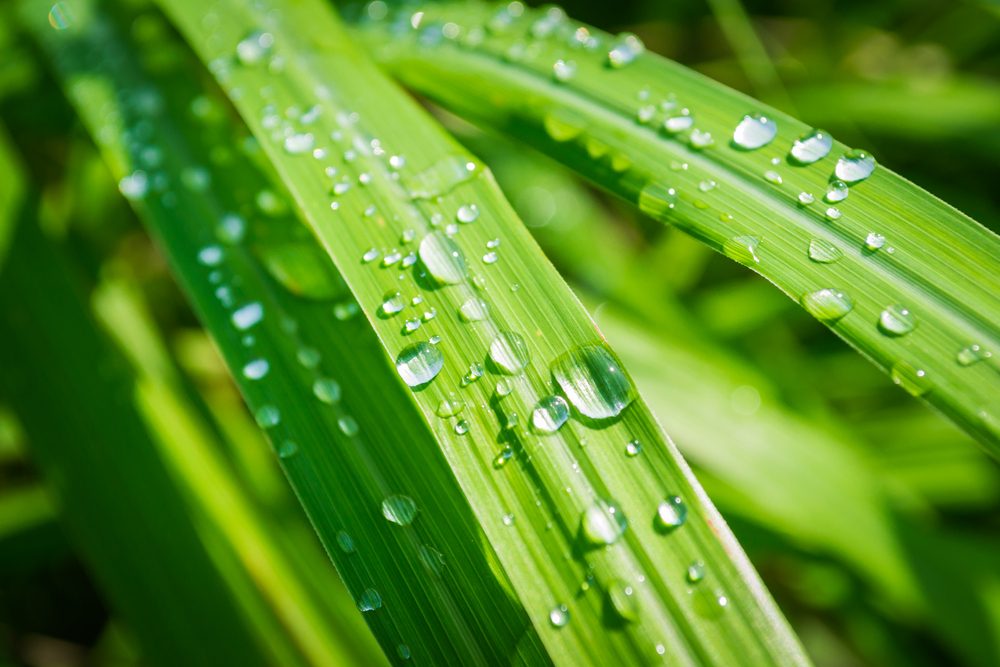Lemongrass has been a herb known for centuries for its health benefits.

Lemongrass is a plant. The leaves and the oil are used to make medicine. Lemongrass is used for treating digestive tract spasms, stomachache, high blood pressure, convulsions, pain, vomiting, cough, achy joints (rheumatism), fever, the common cold, and exhaustion. It is also used to kill germs and as a mild astringent.
Some people apply lemongrass and its essential oil directly to the skin for headache, stomach ache, abdominal pain, and muscle pain. By inhalation, the essential oil of lemongrass is used as aromatherapy for muscle pain. In food and beverages, lemongrass is used as a flavouring. For example, lemongrass leaves are commonly used as “lemon” flavouring in herbal teas. In manufacturing, lemongrass is used as a fragrance in soaps and cosmetics. Lemongrass is also used in making vitamin A and natural citral.
Lemongrass might help prevent the growth of some bacteria and yeast. Lemongrass also contains substances that are thought to relieve pain, reduce fever, stimulate the uterus and menstrual flow, and have antioxidant properties.
Cymbopogon or lemongrass is a genus of about 55 species of grasses, (of which the type species is Cymbopogon citratus a natural and soft tea Anxiolytic ) native to warm temperate and tropical regions of the Old World and Oceania. It is a tall perennial grass. Common names include lemon grass, lemongrass, barbed wire grass, silky heads, citronella grass,cha de Dartigalongue, fever grass, tanglad, hierba Luisa or gavati chaha amongst many others.
Lemongrass is native to India and tropical Asia. It is widely used as an herb in Asian cuisine. It has a subtle citrus flavour and can be dried and powdered, or used fresh. Lemongrass is commonly used in teas, soups, and curries. It is also suitable for poultry, fish, beef, and seafood. It is often used as a tea in African countries such as Togo and the Democratic Republic of the Congo and Latin American countries such as Mexico. Lemongrass oil is used as a pesticide and a preservative. Research shows that lemongrass oil has anti-fungal properties. Despite its ability to repel insects, its oil is commonly utilized as a “lure” to attract honey bees. “Lemongrass works conveniently as well as the pheromone created by the honeybee’s nasonov gland, also known as attractant pheromones. Because of this, lemongrass oil can be used as a lure when trapping swarms or attempting to draw the attention of hived bees.”
Cymbopogon citratus from the Philippines, where it is locally known as tanglad. Citronella grass (Cymbopogon nardus and Cymbopogon winterianus) grows to about 2 meters (about 6.5 feet) and has red base stems. These species are used for the production of citronella oil, which is used in soaps, as an insect repellent (especially mosquitoes) in insect sprays and candles, and also in aromatherapy, which is famous in Bintan Island, Indonesia. Therefore it’s assumed that its origin is from Indonesia. The principal chemical constituents of citronella, geraniol and citronellol, are antiseptics, hence their use in household disinfectants and soaps. Besides oil production, citronella grass is also used for culinary purposes, in tea and as a flavouring.
Citronella is usually planted in home gardens in order to ward off insects such as whitefly. Its cultivation enables growing some vegetables (e.g. tomatoes and broccoli), without applying pesticides. Intercropping should include physical barriers, for citronella roots can take over the field. Lemon Grass Oil, used as a pesticide and preservative, is put on the ancient palm-leaf manuscripts found in India as a preservative. It is used at the Oriental Research Institute Mysore, the French Institute of Pondicherry, the Association for the Preservation of the Saint Thomas Christian Heritage in Kerala and many other manuscript collections in India. The lemon grass oil also injects natural fluidity into the brittle palm leaves and the hydrophobic nature of the oil keeps the manuscripts dry so that the text is not lost to decay due to humidity.
East-Indian Lemon Grass (Cymbopogon flexuosus), also called Cochin Grass or Malabar Grass is native to Cambodia, Vietnam, India, Sri Lanka, Burma,and Thailand while the West-Indian lemon grass (Cymbopogon citratus) is native to maritime Southeast Asia. It is known as serai in Malaysia and Brunei, serai or sereh in Indonesia, and tanglad in the Philippines. While both can be used interchangeably, C. citratus is more suited for cooking. In India C. citratus is used both as a medical herb and in perfumes. Cymbopogon citratus is consumed as a tea for anxiety in Brazilian folk medicine, but a study in humans found no effect. The tea caused a recurrence of contact dermatitis in one case.
Lemon grass is also known as Gavati Chaha in the Marathi language (Gavat=grass; Chaha=tea), and is used as an addition to tea, and in preparations like ‘kadha,’ which is a traditional herbal ‘soup’ used against coughs, colds, etc. It has medicinal properties and is used extensively in Ayurvedic medicine. It is supposed to help with relieving cough and nasal congestion. In Kerala, lemon grass is steeped as an herbal tea called “Chukku Kaapi”, literally “dried ginger coffee”.
Lemongrass seems to be safe for most people when used in food amounts. It is safe when used for medicinal purposes, short term. However, there have been some toxic side effects such as lung problems after inhaling lemongrass and a fatal poisoning after a child swallowed a lemongrass oil-based insect repellent.
Special Precautions & Warnings: Pregnancy and breast-feeding: It is unsafe to take lemongrass during pregnancy. Lemongrass seems to be able to start menstrual flow, so there is a concern that it might cause a miscarriage. It’s also best to avoid lemongrass if you are breast-feeding. Not enough is known about its possible effects on the nursing infant.
Health Benefits of Lemongrass
Prevent cancer
A study revealed that every 100 gram of lemon grass contains antioxidants that can prevent cancer. In 2006, a team of researchers from the University Gurion in Israel discovered a compound in the body that lemongrass can kill cancer cells without harming healthy cells.
Drug indigestion
Tea contains lemongrass helps overcome indigestion, abdominal pain, colds, intestinal cramps and diarrhea. Lemongrass also helps reduce gas and prevent the formation of intestinal gas further.

Detoxification
Lemongrass also has properties detoxify the body by increasing the number and frequency of urination. This can make the digestive organs, liver, pancreas, kidneys, and bladder clean and healthy as toxic substances and uric acid is removed.
Benefits of the nervous system
Essential oils are made using lemongrass can be used to strengthen and improve the functioning of the nervous system. Therefore lemongrass oil that is applied to the body surface warming effect, relaxes muscles and relieve cramps.
Lowering blood pressure
Lemongrass effectively reduce blood pressure, stimulate blood circulation and removes blood pressure problems. Consumption of lemongrass juice to reduce hypertension.
As an analgesic
Lemongrass relieve all types of inflammation and irritability associated with aches and pains. So if you have a toothache, muscle pain, joint pain, or pain, lemongrass tea can certainly help.
Beautiful Skin
Lemongrass is a pillar in the cosmetics industry. Benefits include reducing acne and serves as a refresher. Lemongrass oil can also be massaged into the entire body to give effect to warm up.
Women’s health
Given drinking lemongrass tea, may help reduce menstrual pain and nausea.
Nutrients in Lemongrass
Three to four stalks of lemongrass yield about 1/2 cup when chopped, which provides sufficient seasoning for a meat, fish or vegetable dish that serves four people. Since its flavor is so strong, you’re not likely to eat much lemongrass at one time, but you’ll still gain nutrients from even a small amount. One tablespoon of lemongrass has .4 milligrams of iron. That’s 5 percent of the recommended daily intake for men and 2 percent for women. The same portion also has 1 percent of the recommended daily intake of folate, potassium, magnesium, zinc and phosphorus. Lemongrass has vitamin C, vitamin B-6, riboflavin and niacin, but you’d have to eat an entire cup to gain a significant amount of these nutrients.
Lemongrass Tea
Lemongrass tea is an herbal beverage made by infusing a packet of dried lemongrass in a cup or pot of hot water. The drink can be served hot, shortly after the packet of herbs as finished steeping, or cold. To serve the tea cold, it can be left to chill in a refrigerator or poured over a generous amount of ice. The resulting beverage, cold or hot, is both very refreshing and zesty.
Lemongrass is a native of South East Asia and Africa. Cymbopogon, as it is botanically called, this plant belongs to the grass family. Since the ancient times, lemongrass has widely been used in Indian cuisine. Lemongrass oil has been used for its zesty flavour and medicinal properties. However, in recent times, lemongrass tea has gained immense popularity among westerners for its medicinal properties. This tall perennial grass is easy to grow, which is why you can make it a regular kitchen garden plant.
The herb lemongrass is most commonly used in cooking, particularly in savory dishes. It is most common in cuisines from Southeast Asia and is considered to be one of the most important and distinctive flavors in Thai cooking. Lemongrass tea has a flavour very true to the flavour of the herb itself. As the name suggests, the tea tastes of lemon, but also includes hints of ginger as well. As the flavor of lemongrass pairs well with ginger, sometimes lemongrass tea includes ginger or the two herbs are blended together in an herbal tea with other milder ingredients.
In addition to being blended with ginger root, lemongrass is often blended with mint or chamomile. These two herbs complement the flavors of lemongrass quite well and are also a bit milder. As such, they help to round out the flavour profile of the tea. These sorts of blends are often enjoyed by people who like the flavour of lemongrass, but prefer to have its zesty flavour smoothed out by milder flavours.

Herbalists believe that lemongrass tea has a number of benefits for those who drink it. One of the benefits of the tea is that it is supposed to help to lift the spirits and may improve the mood and sense of well-being. It is also believed that lemongrass tea can help to cure indigestion. This is especially true of blends of the tea that are made with ginger as ginger is excellent at curing indigestion. Of course, those experiencing serious depression or digestive issues should seek out medical help.
Another benefit of lemongrass tea is that it is naturally caffeine free. Unlike teas that are decaffeinated, which means that they still contain a small amount of caffeine, lemongrass tea has no caffeine at all. This means that it can be enjoyed at all times of the day and night. It can be especially enjoyable after dinner, especially for those who are prone to bouts of indigestion in the evenings.
Health Benefits of Lemongrass Tea
Lemongrass has been used in South Asian cooking since a long time. It is known to have a calming effect on the body, thereby helps in inducing sleep and curing insomnia. Lemongrass is also antibacterial and antifungal in nature, which makes it an effective remedy for a wide variety of complaints. It provides relief from nausea, severe menstrual cramps and acts as a diuretic too. The health benefits stretch to detoxification of liver, pancreas, kidneys, bladder and the digestive tract. Lemongrass tea also helps in maintaining normal cholesterol levels in the body, toxins, excess fats and improves digestion. Lemongrass finds a place in traditional medicine for its innumerable properties, relieving common cold and cough being the famous ones.
Lemongrass tea has been an ancient remedy for curing chest congestion, colds and coughs. A concoction called, ‘kadha’ is given to the patient to get rid of common cold. Also, if you add a dash of pepper to lemongrass tea, it will help you ease all menstrual problems like cramps and nausea. Interestingly, lemongrass tea benefits in acne prevention and in dealing with other skin problems too. Studies have shown that drinking lemongrass tea on a regular basis, prevents the skin from developing any acne or pimples. This is true, as acne is a result of bacteria, and the anti-bacterial nature of the tea, helps the skin to look good and feel good.
Lemongrass Tea Side Effects
When taken internally in recommended dosages, lemongrass is not associated with any bothersome or significant side effects. Cases have been reported, however, in which people have developed skin rashes after drinking lemongrass tea.
Avoid lemongrass in individuals with a known allergy or hypersensitivity to lemongrass. Lemongrass and other essential oils, both applied on the skin and taken as a tea, may cause allergic contact skin reactions.
Lemongrass may lower blood sugar levels. Caution is advised in patients with diabetes or hypoglycemia, and in those taking drugs, herbs, or supplements that affect blood sugar. Serum glucose levels may need to be monitored by a healthcare provider, and medication adjustments may be necessary.
Lemongrass may cause slight increases in liver function tests, particularly bilirubin, or an increase in pancreatic tests, particularly amylase. Patient with liver conditions should use lemongrass with caution.
Avoid drinking lemongrass tea in excess as it tends to increase body heat. If you are suffering from any ailment, make sure you consult a doctor, before you start consuming this herbal tea. In case you feel any side effect after drinking this tea, immediately stop taking it.
Also, lemongrass tea during pregnancy isn’t a good idea since there is a concern that it might cause a miscarriage, so avoid completely. It is also best to avoid using it during breastfeeding since information regarding safety and efficacy is lacking.
Disclaimer
The Content is not intended to be a substitute for professional medical advice, diagnosis, or treatment. Always seek the advice of your physician or other qualified health provider with any questions you may have regarding a medical condition.